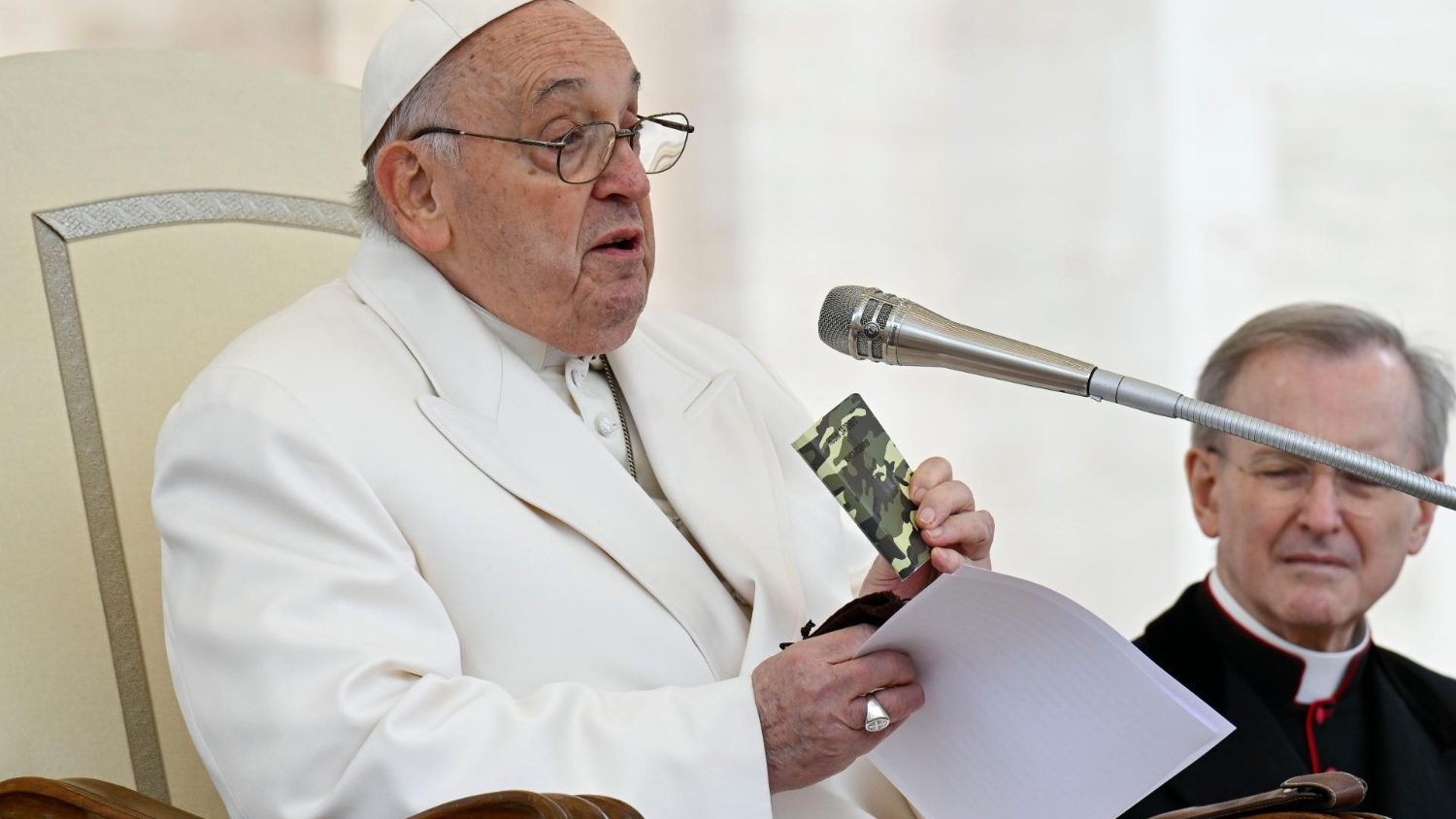During his General Audience, Pope Francis remembered the countless dead in Russia's war in Ukraine as he showed tourists and pilgrims in St. Peter's Square the personal belongings of Oleksandr, a 23-year-old Ukrainian soldier killed in the eastern city of Avdiivka, Vatican News reports.
Sor Lucía Caram, an Argentine-born nun living in Spain who has led multiple humanitarian missions to Ukraine, gave Francis the rosary and the camouflaged New Testament book of Oleksandr two weeks ago.
In her Instagram post, Caram said the Pope became emotional during a private audience when she presented him with Oleksandre's belongings. She wrote that Francis had kissed the rosary and gave her more rosaries to bring and distribute in Ukraine on her subsequent humanitarian missions.
As Pope Francis displayed the items during his general audience, he flipped through the pages of Oleksandr's underlined New Testament, noting that the young man had “an entire life ahead of him when he was killed.” Francis asked for a moment of silent prayer, “thinking of this kid and so many like him, killed in this madness of war."
AP also reports that in the same general audience, Pope Francis led a moment of silence for the seven World Central Kitchen aid workers killed by an Israeli strike in Gaza, appealing for an immediate cease-fire and the release of hostages taken by Hamas on 7 October.
The Pope has shown relics from the war in Ukraine previously when he displayed a battered Ukrainian flag recovered from Bucha, a site of early Russian atrocities.
Earlier controversies
Despite recognizing Russia as the aggressor in the war against Ukraine in November 2022, Pope Francis has faced criticism for his perceived ambiguity regarding the war.
In one of his interviews, he called on Ukraine to “raise the white flag” and negotiate with Russia, suggesting that international powers, such as Türkiye, could assist in the mediation process. The Vatican later clarified that the Pope used the term "white flag" to indicate an end of hostilities and a truce reached through the courage of negotiation.
He also faced backlash regarding his mention of “great Russia” in his online speech to the X All-Russian Day of Catholic Youth participants in August 2023. After sharp criticism, the Pope admitted that his reference to Russian emperors Peter the Great and Catherine the Great was inappropriate and improvised. He explained that he intended to encourage Russian youth to preserve their country's cultural heritage, not to defend imperialism. The Vatican later removed the controversial quote from the official text of the speech on its website, but a video excerpt with this quote is still available online.
Religious scholar Regina Elsner argues that Pope Francis habitually fails Ukraine in his statements and actions due to several factors:
- Vatican's lack of expertise in Eastern Europe beyond Russia.
- Vatican’s prioritization of an alliance with the Russian Orthodox Church.
- Vatican’s ignorance of the functionality of Russian propaganda.
Read more:
- Pope Francis recognizes Russia as aggressor in war against Ukraine
- Pope urges Ukraine to raise the white flag, sparking controversy
- Vatican plan to pair Ukrainian and Russian boy in Easter procession drops through
- Pope Francis admits his words about Russia were inappropriate
- Three reasons why Pope Francis perpetually fails Ukraine
- Pope calls on Russian “brothers” to restore Black Sea grain deal – Vatican News
- Pope Francis meets with Ukrainian servicemen in Vatican

